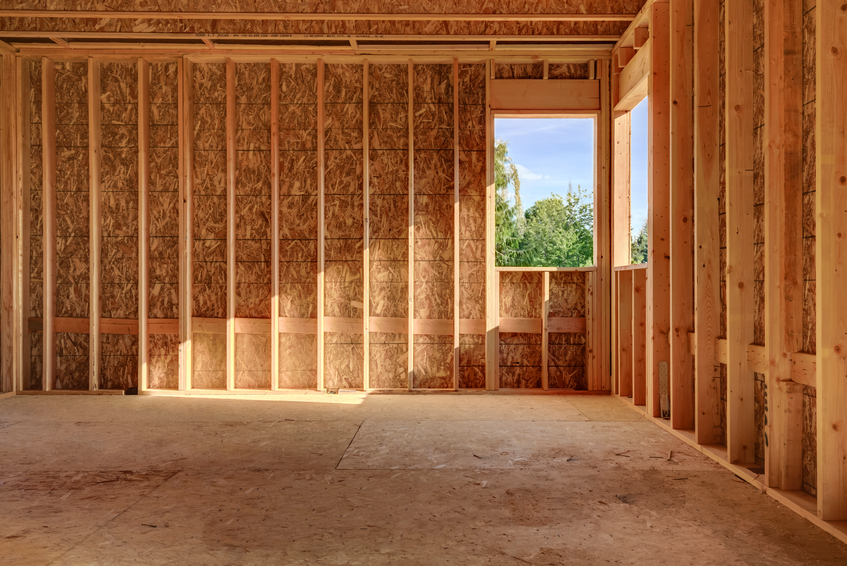Structural and Florida Laws, Rules & Ethics 18 PDH Discount Package 3
Courses in this Package
Wood as An Engineering Material: Moisture Relations and Physical Properties (S02-022)
Strength Design For Reinforced Concrete Hydraulic Structures (S03-022)
Determining the Cost/Benefit of Routine Maintenance Cleaning on Steel Bridges (S03-024)
Protocols for the Assessment and Repair of Bridge Foundations (S08-006)
Engineering Laws, Rules and Ethics for Florida Professional Engineers (FL2-006)

This online engineering PDH course discusses the macroscopic physical properties of wood with emphasis on their relationship with moisture content.
Wood, like many natural materials, is hygroscopic; it takes on moisture from the surrounding environment. Moisture exchange between wood and air depends on the relative humidity and temperature of the air and the current amount of water in the wood. This moisture relationship has an important influence on wood properties and performance. Many of the challenges of using wood as an engineering material arise from changes in moisture content or an abundance of moisture within the wood.
This 2 PDH online course is applicable to civil, structural or geotechnical engineers, as well as design and construction personnel who are interested in gaining a better understanding in fire safety of wood construction or who are involved in the design and planning of wood structures.
This PE continuing education course is intended to provide you with the following specific knowledge and skills:
- Familiarizing with the different wood-moisture relationships
- Understanding the four thermal properties of wood
- Learning about the electrical properties of wood
- Understanding the friction properties of wood
In this professional engineering CEU course, you need to review Chapter 4, "Moisture Relations and Physical Properties of Wood" of the United States Department of Agriculture (USDA) Publication, “Wood Handbook - Wood as An Engineering Material”, FPL-GTR-190.
Once you complete your course review, you need to take a multiple-choice quiz consisting of fifteen (15) questions to earn 2 PDH credits. The quiz will be based on Chapter 4 of this USDA publication.
Upon successful completion of the quiz, print your Certificate of Completion instantly. (Note: if you are paying by check or money order, you will be able to print it after we receive your payment.) For your convenience, we will also email it to you. Please note that you can log in to your account at any time to access and print your Certificate of Completion.

This online engineering PDH course describes typical loads for the design of reinforced concrete hydraulic structures (RCHS) and provides detailed information on design procedures along with examples of their application.
Reinforced concrete hydraulic structures have very long service lives and are subject to different types of loads, severe climatic conditions and sometimes to chemically contaminated atmosphere. To ensure a satisfactory long term service and to provide a safe, reliable and cost effective hydraulic structures, industry design and construction standards should be adopted.
Satisfactory long-term service requires that the saturated concrete be highly resistant to deterioration due to daily or seasonal weather cycles and tidal fluctuations at coastal sites. The often relatively massive members of RCHS must have adequate density and impermeability, and must sustain minimal cracking for control of leakage and for control of corrosion of the reinforcement. Most RCHS are lightly reinforced structures (reinforcement ratios less than 1%) composed of thick walls and slabs that have limited ductility compared to the fully ductile behavior of reinforced concrete buildings (in which reinforcement ratios are typically 1% or greater).
This 3 PDH online course is applicable to civil and structural engineers who are interested in learning more about reinforced concrete hydraulic structures, its detailed design considerations and applications.
This PE continuing education course is intended to provide you with the following specific knowledge and skills:
- Familiarizing with the details of reinforcement in various members of hydraulic structures
- Familiarizing with the different designs of RCHS and examples of their applications
- Learning about members that are subjected to shear load effects
- Understanding the effect of combined flexural and axials loads on design parameters
- Knowing the strength and serviceability requirements of different structures
Upon successful completion of the quiz, print your Certificate of Completion instantly. (Note: if you are paying by check or money order, you will be able to print it after we receive your payment.) For your convenience, we will also email it to you. Please note that you can log in to your account at any time to access and print your Certificate of Completion.

This online engineering PDH course aims at identifying the key variables necessary in estimating the impact of regular washing of steel bridges on the paint and service life, recommending methods for recording data in order to most effectively estimate the benefits of bridge washing, and developing a framework to assess the impact of bridge washing on paint life.
Thirty years ago, when the environmental rules changed, the WSDOT stopped annual cleaning of steel truss bridges. Some cleaning was done after this time only to assist inspection crews or to determine what the cost would be to hand clean a steel truss bridge. WSDOT is investigating the feasibility of an annual steel truss bridge washing program. A pilot study was implemented in 2011 that will help to determine the benefits and environmental impacts of such a program.
This work builds on the pilot study to identify current bridge washing practices around the country and to select the measurements necessary to determine whether more regular washing has positive cost benefits. The research summarized in this course is a first step towards understanding and quantifying the benefits of a more regular bridge washing program on paint life and corrosion.
This 3 PDH online course is applicable to civil and structural engineers who are interested in assessing the impact of bridge washing on paint and service life, estimating the benefits of bridge washing, and improving the maintenance of steel bridges.
This PE continuing education course is intended to provide you with the following specific knowledge and skills:
- Familiarizing with the pilot bridge washing program, the conducted studies and the yielded results
- Gaining a general overview on the research and literature review concerning bridge maintenance
- Learning about the nationwide survey on bridge washing programs, and the responses in different States
- Exploring the bridge washing programs in different States including Iowa, Alaska, Kentucky, New York, New Hampshire, Missouri, Indiana
- Identifying the impact of regular bridge washing programs on paint life and corrosion
Upon successful completion of the quiz, print your Certificate of Completion instantly. (Note: if you are paying by check or money order, you will be able to print it after we receive your payment.) For your convenience, we will also email it to you. Please note that you can log in to your account at any time to access and print your Certificate of Completion.

This online engineering PDH course provides information on protocols for the assessment and repair of bridge foundations.
This course is intended to provide guidance to bridge owners for preparing for and responding to bridge foundation failures. The word “failure” as used herein includes foundation movements and/or corrosion beyond the design norms for the structure that result in the need to close a bridge or portion thereof for any period of time. The movements and/or corrosion may or may not cause the bridge to be unsafe but are considered significant enough to close the bridge.
This course describes case histories of recent bridge foundation failures. It also provides guidance on preparing for foundation events by collecting records, establishing response teams and developing notification and communication protocols. Once an event has occurred, the course provides guidance for response including closing the bridge to traffic, notifying government and private parties, stabilizing the bridge site, investigative and monitoring techniques, repair and retrofit techniques. The course includes a check list intended to assist bridge in preparing for an incident and for developing a response once an incident has occurred.
This 8 PDH online course is applicable to structural engineers and other professionals who are interested in learning more about the assessment and repair of bridge foundations.
This PE continuing education course is intended to provide you with the following specific knowledge and skills:
- Familiarizing with repair and retrofit techniques utilized in the restoration of bridge foundations, ensuring the successful rehabilitation of the structure
- Learning about effective response procedures following a bridge foundation failure, such as closing the bridge to traffic, notifying relevant government and private parties, stabilizing the bridge site, and implementing investigative and monitoring techniques
- Understanding the definition and scope of bridge foundation failures, encompassing movements and/or corrosion that exceed design norms and necessitate bridge closures
- Learning about practical guidance for preparing for foundation events, including the collection of relevant records, establishment of response teams, and development of notification and communication protocols
- Knowing strategies and techniques to restore the load carrying capacity of failed bridge foundations, enabling the bridge to be put back into service
Upon successful completion of the quiz, print your Certificate of Completion instantly. (Note: if you are paying by check or money order, you will be able to print it after we receive your payment.) For your convenience, we will also email it to you. Please note that you can log in to your account at any time to access and print your Certificate of Completion.

Upon successful completion of the “Engineering Laws, Rules and Ethics for Florida Professional Engineers” course, we will report your PDH credits for this course to the FBPE within 2 business days. Therefore, it is imperative that you indicate your Florida PE license number in your CED account so that we can successfully do so. Once reported, please allow up to 48 hours for the FBPE to update their database.
This online PDH course is a FL approved Engineering Laws, Rules and Ethics course and is being offered by Continuing Education and Development, Inc, a FL approved Continuing Education Provider (CEP No. 0004183).
The first part of this course begins with an overview of the Laws and Rules governing the practice of engineering in the State of Florida (Chapter 1) including:
- Florida Statutes, Chapter 455, “Department of Business and Professional Regulation”
- Florida Statutes, Chapter 471, “Engineering”
- Florida Administrative Code, 61G15, F.A.C., “Florida Board of Professional Engineers”
Then it continues to address the rules amended, adopted or otherwise repealed from 61G15, F.A.C. (Chapter 2) as well as the changes to Chapters 455, F.S. and 471, F.S. (Chapter 3), within the preceding biennium, as applicable.
The second part of this course presents engineering ethics and the principles of professional responsibility (Chapter 4). It further illustrates the application of Chapters 455 and 471, F.S. to a randomly selected set of ethical and disciplinary cases (Chapter 5).
This 2 PDH online engineering course is applicable to Professional Engineers licensed in the State of Florida and who are required to demonstrate continuing professional competency in the Florida Laws, Rules and Ethics as a condition of license renewal. For each renewal period, every licensee must complete eighteen (18) professional development hours as follows:
- One hour must relate to this chapter and the rules adopted under this chapter;
- One hour must relate to professional ethics;
- Four hours must relate to the licensee’s area of practice; and
- The remaining hours may relate to any topic pertinent to the practice of engineering.
This PE continuing education engineering course is intended to provide you with the following specific knowledge and skills:
- Understanding the different Florida laws and rules regulating the practice of engineering in the State of Florida and their application to Professional Engineers
- Learning the rules adopted, amended or repealed from 61G15 within the preceding biennium
- Learning the changes made to Chapters 455, F.S. and 471, F.S. within the preceding biennium
- Understanding ethical behavior and the principles of professional responsibility in the field of engineering
- Understanding the general application of Chapters 455 and 471, F.S. to various ethical and disciplinary cases of Professional Engineers
Upon successful completion of the quiz, print your Certificate of Completion instantly. (Note: if you are paying by check or money order, you will be able to print it after we receive your payment.) For your convenience, we will also email it to you. Please note that you can log in to your account at any time to access and print your Certificate of Completion.